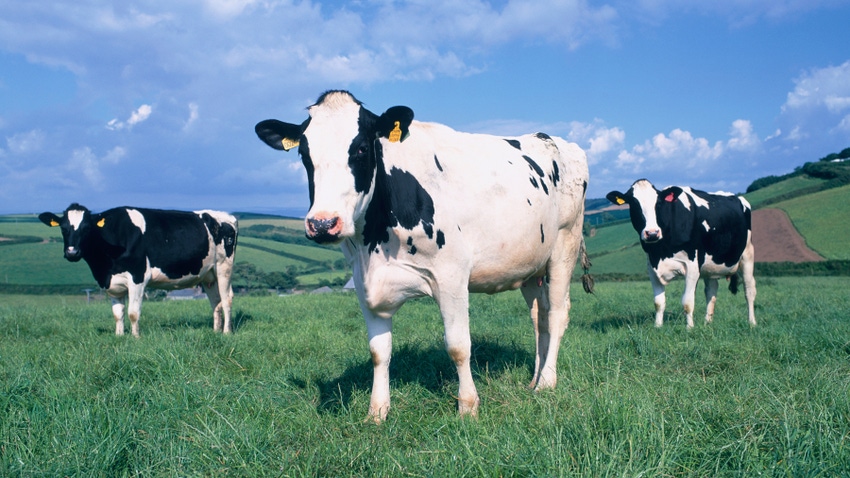
Bipartisan legislation introduced in both the Senate and House would require plant-based dairy alternatives made from nuts, seeds, plants and algae to no longer be used as dairy terms on milk, yogurt or cheese products. It awaits Congress decision later this year.
The Defending Against Imitations and Replacement of Yogurt, Milk and Cheese to Promote Regular Intake of Dairy Everyday Act, better known as the Dairy Pride Act of 2023, was introduced Feb. 28 in the Senate by Sens. Tammy Baldwin, D-Wis.; Susan Collins, R-Maine; Peter Welch, D-Vt.; and Jim Risch, R-Idaho. On March 8, the same legislation was introduced in the House by Reps. John Joyce, R-Pa.; Ann Kuster, D-N.H.; Mike Simpson, R-Idaho; Joe Courtney, D-Conn.; Derrick Van Orden, R-Wis.; and Angie Craig, D-Minn.
Plant-based alternatives
The legislation was prompted by the Food and Drug Administration’s release of draft guidance on the naming of plant-based foods that are marketed and sold as alternatives to milk. FDA says a plant-based milk alternative may be labeled with the terms “milk, beverage or drink.”
The Dairy Pride Act would require FDA to issue draft guidance for nationwide enforcement of mislabeled imitation dairy products within 90 days, issue final guidance within 180 days and report to Congress two years after enactment to hold the agency accountable for its enforcement obligations. FDA is accepting comments on its draft guidance until April 24.
Many dairy industry representatives support the legislation, including Jim Mulhern, president and CEO of the National Milk Producers Federation. “Dairy Pride is needed more than ever,” Mulhern says, “now that FDA has offered guidance on the labeling of plant-based beverages that, while taking steps in the right direction, ultimately doesn’t remedy the problem it seeks to solve — which is the proven confusion among consumers created when plant-based beverages steal dairy terms to make their products appear healthier than they really are. FDA has acknowledged the problem of nutritional confusion without providing a complete solution.
“Dairy Pride solves the problem by requiring FDA to enforce what its own standards of identity state: that ‘milk’ is a term reserved for animal products, and that plant-based drinks or beverages shouldn’t be allowed to use dairy terms in their labeling.”
Contradicting guidance
Jeff Lyon, general manager of FarmFirst Dairy Cooperative in Madison, echoes Mulhern. “It’s extremely frustrating that FDA’s recently released dairy draft guidance contradicts their own regulation and definitions, allowing non-dairy products to use dairy names,” he says.
“For years, FarmFirst has been engaged on the issue to require FDA to enforce milk standards of identity, which prohibit using dairy terms on non-dairy products. We commend Sen. Baldwin for her persistent efforts to hold the FDA accountable through her direct communication with FDA and the reintroduction of the Dairy Pride Act,” Lyon adds.
Kevin Krentz, president of the Wisconsin Farm Bureau Federation, says FDA cannot choose which regulation to enforce and which it will ignore. In this case, federal regulations are clear, and FDA still chose to issue guidance in conflict with its own definitions, hurting Wisconsin farmers in the process.
“If federal agencies are going to ignore their own regulations, Congress must act to force compliance and protect farmers,” Krentz says. “Wisconsin Farm Bureau is in full support of Sen. Tammy Baldwin’s introduction of the Dairy Pride Act, which would force the FDA to abide by their own definitions.”
Misleading labeling has run amok in the American food industry, confusing consumers and putting dairy farmers at a disadvantage, according to Darin Von Ruden, president of Wisconsin Farmers Union says. “ It is time we clear up the confusion around food labels by recognizing that ‘milk’ originates from mammals, and items masquerading as such are often not nutritionally interchangeable.”
Bipartisan legislation introduced in both the Senate and House would require plant-based dairy alternatives made from nuts, seeds, plants and algae to no longer be used as dairy terms on milk, yogurt or cheese products. It awaits Congress decision later this year.
About the Author(s)
You May Also Like






